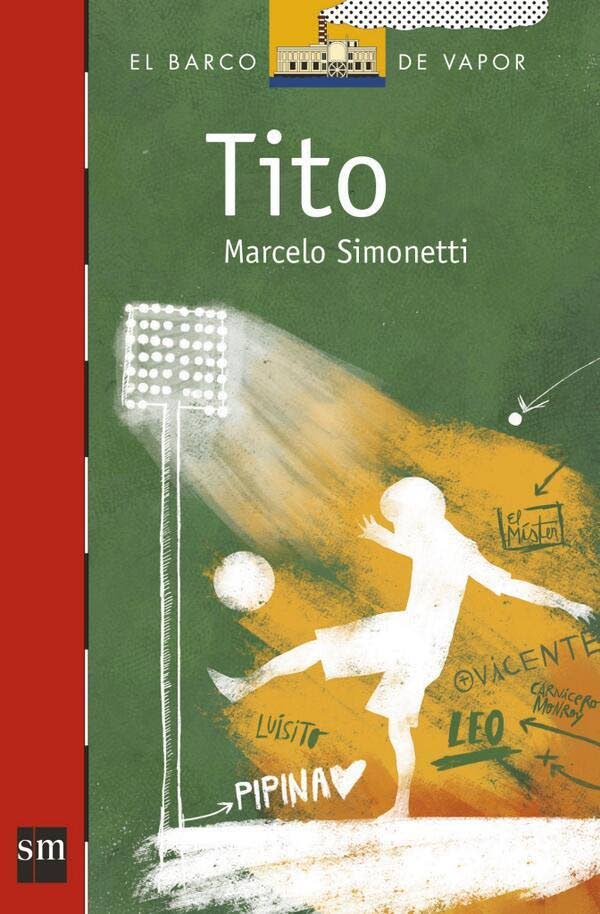Tito’s edgy and juicy

DEBBIE JACOB
LIGHTHEARTED and lyrical, Tito, by journalist/writer/screenwriter Marcelo Simonetti, is a frolicking coming-of-age story, Chilean-style. That means it is edgy and juicy as well.
Tito’s world, which he often thinks of as a bad dream or a disaster (because he is prone to exaggeration) is actually quite exciting and revealing. It’s a challenging world of sports, girls, friendship and adventure tailor-made for Young Adult (YA) readers – particularly boys – because football is a major part of Tito’s life.
For Tito, football is not only a fun pastime, it is the knot that keeps his life from unravelling as he negotiates his way through excitement as well as the rough and murky existence of adolescence. His adventures at home, in school and at football provide lively relationships and conflicts, which facilitate self-discovery.
Of course, this means putting up with annoying adults and discovering girls.
Unlike many coming-of-age stories, this one is not silly or ponderous. It manages to tackle tough themes and conflicts such as friendship, family relationships and divorce in a light-hearted, provocative manner. Most impressive is Tito’s struggle to find a place in the world. He does this with great aplomb, mainly by recognising adults can be even sillier than children.
Tito is both endearing and astute. He is not fooled when his mother announces that she is bringing a man home for tea. Instead, he braces himself for a change in the family dynamics, all the while trying to find out more about his own father.
Tito is helped through life by his friend Vicente, an admirable character foil who makes Tito think when he would rather just react to the events unfolding around him.

Vicente is the one who breaks the news to Tito that everyone has to start kissing some day. This is an earth-shattering revelation. Tito is full of humour.
Plotwise there is action galore, partly because of how Simonetti weaves football through the story. Boys and girls will find the characters likable. All readers can identify with Tito’s passion for sports and worries about academics. Any book that tackles children’s fears of fitting in is also a winner.
The content makes Tito a difficult book to be used for lower elementary students. References to kissing, dating and boy/girl relationships abound, along with references to alcohol and smoking. Elementary students’ parents frown on that.
But the world Simonetti has constructed is credible and enjoyable for teens. Tito will appeal to a 12-16 range and is a perfect book to engage boys who haven’t been reading.
There is much going on and much to think about in this book, written in short snippets as Tito’s personal diary entries. Illustrations by Fabian Rivas help to liven up and lighten the story as well.
Tito, translated by KT Billey, is noteworthy as well because it is “a gift to the people of the Caribbean and was facilitated through the Embassy of Chile in Trinidad and Tobago,” the verso page says. It is refreshing to see a government support its country’s literature like this so that places like the Caribbean can experience YA literature from South America.
Ian Randle Publishers of Jamaica published the English version.
In my book, Tito is a YA book that scores big.


Comments
"Tito’s edgy and juicy"